INTERPRETACIÓN PROCESAL Y VALORACIÓN PROBATORIA EN LOS CASOS DE VIOLENCIA CONTRA LA MUJER EN LAS TUTELAS CONTRA PROVIDENCIAS JUDICIALES
ANÁLISIS JURISPRUDENCIAL DINÁMICO
Keywords:
Gender perspective, Violence against women, Gender stereotypes, protection against judicial ruling, Due processAbstract
This document examines the stance of the Constitutional Court regarding the admissibility of writs of protection against judicial rulings in cases of violence against women. The study focuses on the assessment carried out by judges regarding the facts and evidence, emphasizing the complexity of this analysis and the need to respect constitutional rights. It highlights the initial tendency of judges to overlook the impact of regulations on the protection of women's rights, due to approaches based on impartiality and generality that do not consider the asymmetrical relationships in gender-based violence.
The research is conducted under a methodology of dynamic analysis of the jurisprudence of the Colombian Constitutional Court, addressing the specific grounds for admissibility of writs of protection against judicial rulings and the duty to interpret norms from a gender perspective. As a conclusion of the study, it is determined that the precedent established by the Colombian Constitutional Court since 2014 upholds the obligation of judges to apply a gender perspective in their judicial decisions, under penalty of incurring in specific grounds for admissibility of writs of protection against judicial rulings. In this regard, the importance of ensuring due process and the protection of victims of domestic violence is emphasized, with judicial officials serving as guarantors of these rights.
References
Corte Constitucional de Colombia. (1996, 8 de octubre). Sentencia T-507/96, T-100.742 y T-101.073 [Magistrado Ponente: Hernando Herrera Vergara].
Corte Constitucional de Colombia. (1996, 9 de mayo). Sentencia T-199/96, T-87402 [Magistrado Ponente: Vladimiro Naranjo Mesa].
Corte Constitucional de Colombia. (1996, 16 de agosto). Sentencia T-372/96, T-96.032 [Magistrado Ponente: Carlos Gaviria Díaz].
Corte Constitucional de Colombia. (2001, 26 de julio). Sentencia T-789/01.
Corte Constitucional de Colombia. (2001, 7 de junio). Sentencia T-608/01, T-423847 [Magistrado Ponente: Jaime Araujo Rentería].
Corte Constitucional de Colombia. (2003, 5 de junio). Sentencia T-458/03, T-716685 [Magistrado Ponente: Marco Gerardo Monroy Cabra].
Corte Constitucional de Colombia. (2010, 29 de septiembre). Sentencia C-776/10, D-8027 [Magistrado Ponente: Jorge Iván Palacio Palacio].
Corte Constitucional de Colombia. (2011, 8 de noviembre). Sentencia T-843/11, T-2’513.620 [Magistrado Ponente: Jorge Ignacio Pretelt Chaljub].
Corte Constitucional de Colombia. (2013, 7 de marzo). Sentencia T-117/13, T-3484833 [Magistrado Ponente: Alexei Julio Estrada].
Corte Constitucional de Colombia. (2013, 8 de mayo). Sentencia T-261/13, T-3672894 [Magistrado Ponente: Luis Ernesto Vargas Silva].
Corte Constitucional de Colombia. (2014, 15 de diciembre). Sentencia T-967/14, T-4143116 [Magistrada Ponente: Gloria Stella Ortiz Delgado].
Corte Constitucional de Colombia. (2014, 18 de noviembre). Sentencia T-878/14, T-4.190.881 [Magistrado Ponente: Jorge Iván Palacio Palacio].
Corte Constitucional de Colombia. (2015, 16 de diciembre). Sentencia T-772/15, T-4.991.216 [Magistrado Ponente: Jorge Ignacio Pretelt Chaljub].
Corte Constitucional de Colombia. (2015, 18 de diciembre). Sentencia T-775/15, T-5204781 [Magistrada Ponente: María Victoria Calle Correa].
Corte Constitucional de Colombia. (2015, 22 de octubre). Sentencia SU-659/15, T-3.795.843 [Magistrado Ponente: Alberto Rojas Ríos].
Corte Constitucional de Colombia. (2016, 16 de mayo). Sentencia T-241/16, T-5.310.907 [Magistrado Ponente: Jorge Ignacio Pretelt Chaljub].
Corte Constitucional de Colombia. (2016, 22 de enero). Sentencia T-012/16, T-4.970.917 [Magistrado Ponente: Luis Ernesto Vargas Silva].
Corte Constitucional de Colombia. (2017, 22 de octubre). Sentencia T-735 de 2017.
Corte Constitucional de Colombia. (2017, 23 de enero). Sentencia T-027/17, T-5.742.929 [Magistrado Ponente: Aquiles Arrieta Gómez].
Corte Constitucional de Colombia. (2017, 28 de marzo). Sentencia T-184/17, T-5892280 [Magistrada Ponente: María Victoria Calle].
Corte Constitucional de Colombia. (2017, 7 de marzo). Sentencia T-145/17.
Corte Constitucional de Colombia. (2018). Sentencia T-462 de 2018.
Corte Constitucional de Colombia. (2022). Sentencia T-016 de 2022.
Corte Constitucional de Colombia. (2023). Sentencia T-172 de 2023.
Corte Constitucional de Colombia. (2023). Sentencia T-326 de 2023.
Comisión Interamericana de Derechos Humanos. (2011). Estándares jurídicos vinculados a la igualdad de género y a los derechos de las mujeres en el sistema interamericano de derechos humanos: Desarrollo y aplicación, actualización del 2011-2014.
Espectador, E. (2017, 30 de julio). Mujer, no siga siendo víctima: consejera de Equidad de Mujer. El Espectador. http://www.elespectador.com/noticias/nacional/mujer-no-siga-siendo-victima-consejera-equidad-de-mujer-articulo-613624
Instituto Nacional de Medicina Legal y Ciencias Forenses. (2017). Boletín epidemiológico. Violencia de Género 2014, 2015 y 2016. http://www.medicinalegal.gov.co/documents/88730/4023454/genero.pdf/8b306a85-352b-4efa-bbd6-ba5ffde384b9
Organización de las Naciones Unidas (ONU). (1995). Cuarta Conferencia Mundial sobre la Mujer. Beijing.
Organización de los Estados Americanos, Secretaría General. (1994, 9 de junio). Convención Interamericana para Prevenir, Sancionar y Erradicar la Violencia contra la Mujer "Convención de Belém do Pará" (Tratado Internacional). Belém do Pará, Brasil. http://www.oas.org/juridico/spanish/tratados/a-61.html
Peña Cuellar DM, Vidal Lasso AD. La desconexión laboral y el acoso laboral. Rev. jurid. Mario Alario D’Filippo (Online) [Internet]. 3 de mayo de 2023 [citado 18 de marzo de 2024];15(29):126-4. Disponible en: https://revistas.unicartagena.edu.co/index.php/marioalariodfilippo/article/view/4231
Roa Avella M del P, Sanabria-Moyano JE, Dinas-Hurtado K. Herramientas de predicción de violencia basada en género y feminicidio mediante la Inteligencia Artificial. Rev. jurid. Mario Alario D’Filippo (Online) [Internet]. 16 de mayo de 2023 [citado 18 de marzo de 2024];15(30):360-9. Disponible en: https://revistas.unicartagena.edu.co/index.php/marioalariodfilippo/article/view/4254
Downloads
Published
Versions
- 2024-03-20 (2)
- 2024-03-20 (1)





